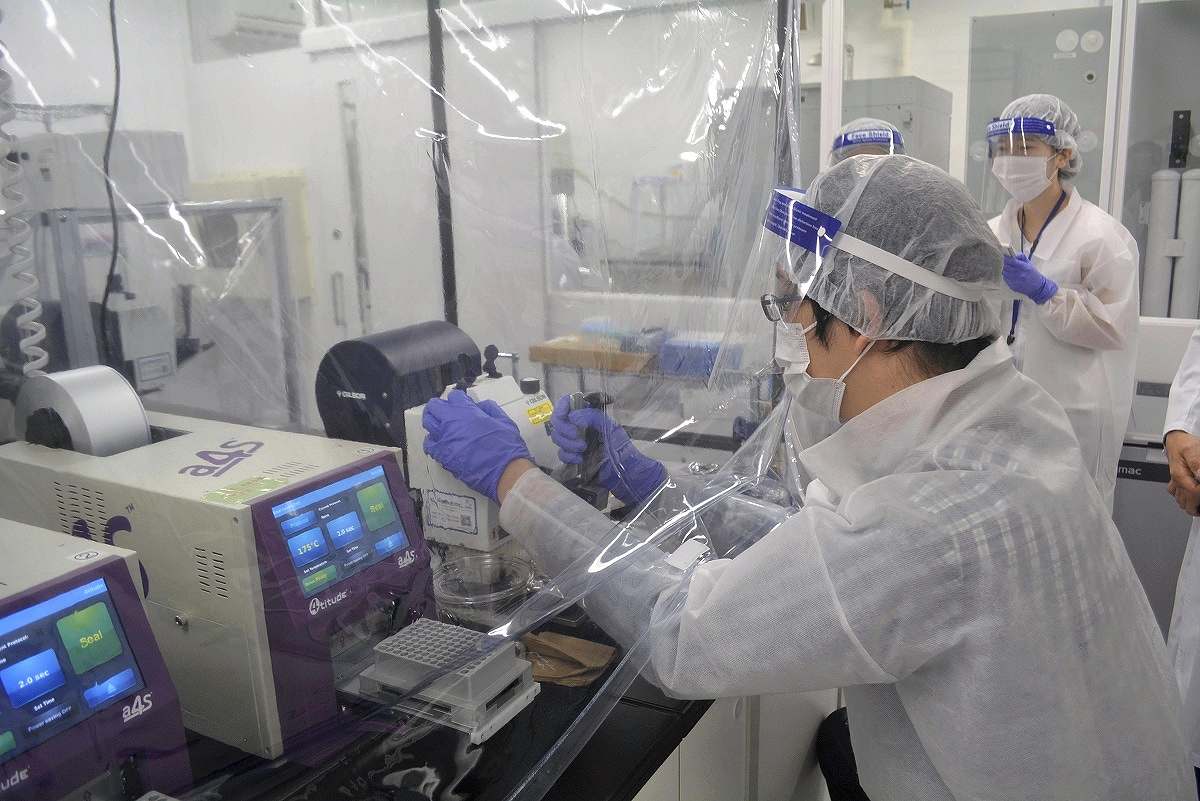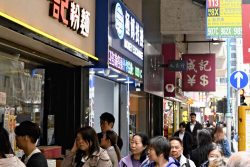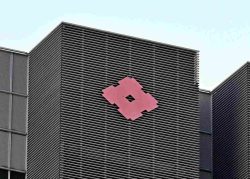
Analysts and others work at a SoftBank Group Corp. testing center in Ichikawa, Chiba Prefecture.
13:34 JST, December 7, 2020
Amid the continuing spread of the novel coronavirus, out-of-pocket testing even for people with no symptoms is becoming more common.
This reflects a demand for obtaining some peace of mind, such as before traveling for business or leisure.
However, because laboratories where doctors do not perform diagnoses are not obligated to report suspected positive cases to public health centers, there is growing concern that appropriate infection control measures such as treatment and isolation are not being implemented.
‘No examination’
“I don’t have a fever, cough or other symptoms, but I don’t want to cause trouble for my clients,” said Fumio Shimamura, 57, who runs a transportation company in Tokyo. Shimamura was explaining why he got a PCR test for the novel coronavirus before a business trip.
He has had clients in regional areas refuse his visit as he is from Tokyo, where infections are spreading.
For his test, Shimamura had a saliva sample taken at a clinic affiliated with the Tokyo Chamber of Commerce and Industry. He paid 25,000 yen before taxes and received a negative result two days later.
“It gave me some relief, but a doctor told me I could get infected tomorrow. I’ll be careful about wearing a mask and washing my hands,” Shimamura said.
During the pandemic, people with symptoms or who have been in close contact with infected people are subject to administrative testing paid for by the government.
This is not the case for everyone else, and demand for out-of-pocket testing is increasing, especially for people who want to know they are negative before things like business trips, hometown visits and recreational travel.
The number of clinics and private companies offering tests has grown.
A Tokyo beauty clinic entered the testing market at the end of August, using a simple method in which customers mail in self-collected saliva samples. The clinic said it has had 100,000 applicants in about three months.
SoftBank Group Corp. offers low-cost testing for companies and others at 2,000 yen per test, before taxes.
Because there is no medical examination by a doctor, the results are not considered diagnoses but simply test data that is returned to the customer.
Cases go unreported
Out-of-pocket testing can be convenient for people trying to cope during a pandemic. However, the emergence of simple methods without a diagnosis from a doctor could be making it more difficult for authorities to grasp the true state of infections.
“The biggest problem is that suspected positive cases are not reported and remain in the dark,” a Tokyo metropolitan health center official said.
The Infectious Diseases Control Law requires doctors who perform diagnoses related to the novel coronavirus to report the results to health centers.
However, if a doctor is not involved, only the person being tested is told about a suspected positive result, which may not lead to an appropriate response, such as hospitalization, treatment and isolation.
In fact, in some cases a person who felt uneasy about not doing anything contacted a health center, leading to the discovery of a cluster of infections among the person’s contacts.
Labs mostly in Tokyo
Reported positive results have also created new issues.
Most medical institutions that accept saliva samples by mail for out-of-pocket testing are in Tokyo. This has led to an increase in the number of positive results being reported to Tokyo public health centers for people who live outside of Tokyo.
In the week ending Nov. 30, of the about 3,000 infections discovered in Tokyo at least 98 were in people who live outside the capital and had done mail-in testing. These apparently include people from all over the country, including Hokkaido and Kyushu.
This problem has been highlighted by Tokyo Gov. Yuriko Koike, who said it was burdening the health centers responsible for contact tracing. Late last month, she asked the central government to take action.
Nagasaki University Prof. Katsunori Yanagihara said: “The original purpose of infectious disease testing was to ensure the person being tested can receive the appropriate treatment and to prevent infections from spreading. With out-of-pocket testing becoming more common, we should create proper rules on how to use these tests for infection control and establish a system for the government to monitor them.”
Top Articles in Society
-

Man Infected with Measles May Have Come in Contact with Many People in Tokyo, Went to Store, Restaurant Around When Symptoms Emerged
-

Australian Woman Dies After Mishap on Ski Lift in Nagano Prefecture
-

Woman with Measles Visited Hospital in Tokyo Multiple Times Before Being Diagnosed with Disease
-

Foreign Snowboarder in Serious Condition After Hanging in Midair from Chairlift in Nagano Prefecture
-

Record-Breaking Snow Cripples Public Transport in Hokkaido; 7,000 People Stay Overnight at New Chitose Airport
JN ACCESS RANKING
-

Japan Institute to Use Domestic Commercial Optical Lattice Clock to Set Japan Standard Time
-

Israeli Ambassador to Japan Speaks about Japan’s Role in the Reconstruction of Gaza
-

Man Infected with Measles May Have Come in Contact with Many People in Tokyo, Went to Store, Restaurant Around When Symptoms Emerged
-

China Eyes Rare Earth Foothold in Malaysia to Maintain Dominance, Counter Japan, U.S.
-

Prudential Life Insurance Plans to Fully Compensate for Damages Caused by Fraudulent Actions Without Waiting for Third-Party Committee Review






















